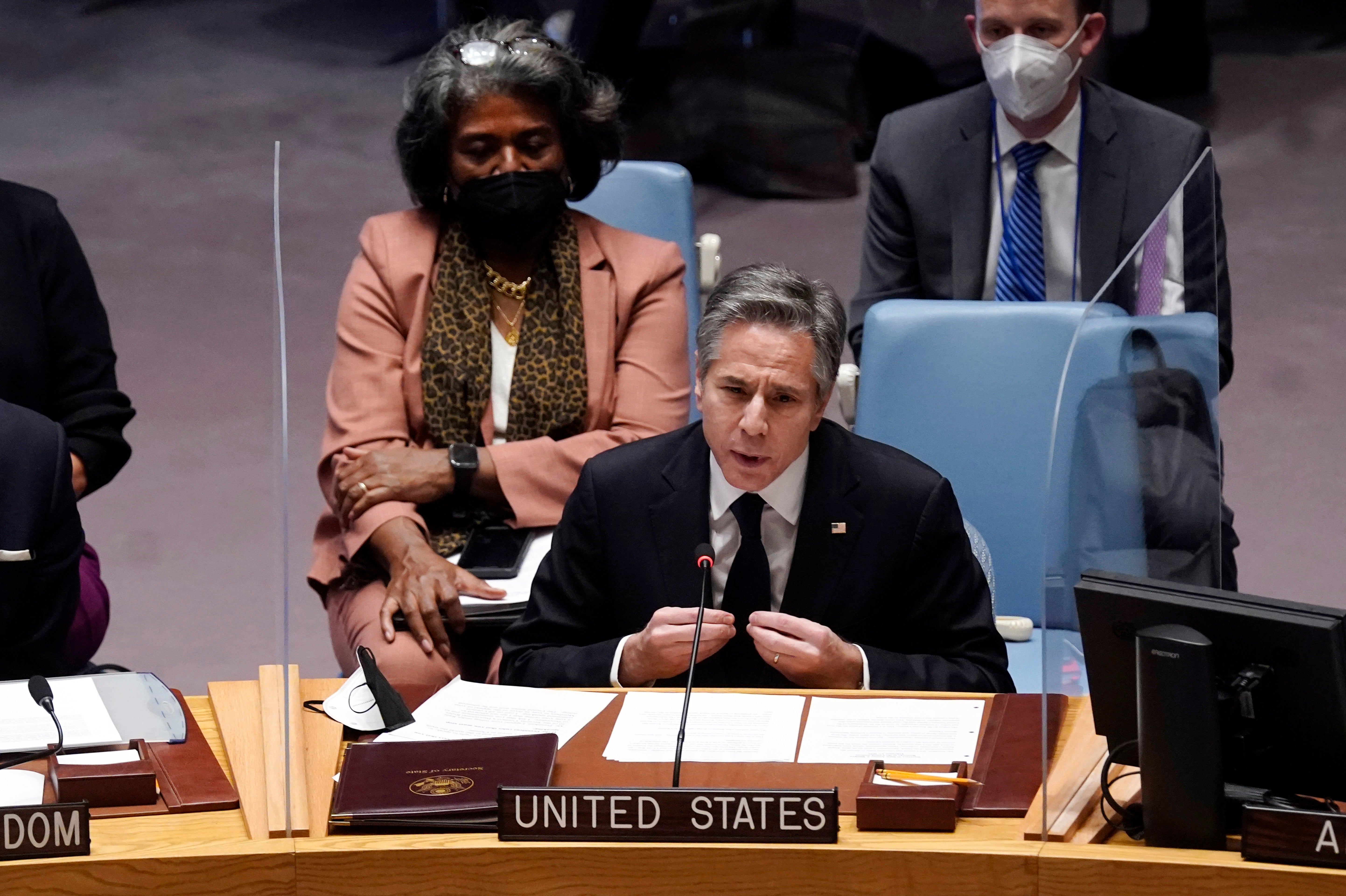UK and US accuse Russia of ‘manufacturing pretext’ for Ukraine attack
At the UN Security Council, America’s top diplomat held out the prospect to President Putin of a summit with key world leaders.

Britain and the United States have accused Russia of seeking to “manufacture a pretext” to invade Ukraine amid deepening fears in the West that an attack is imminent.
At a dramatic session of the United Nations Security Council in New York, US secretary of state Antony Blinken laid out how a Russian incursion could unfold.
At the same time he held out the prospect to President Vladimir Putin of a summit with key international leaders if Moscow was prepared to pursue the path of diplomacy.
“As lead diplomats for our nations we have a responsibility to make every effort for diplomacy to succeed, to leave no diplomatic stone unturned,” he said.
Mr Blinken said that while they did not know precisely how a Russian invasion would play out, it could begin with a “violent event” which Moscow would blame on Ukraine.
“It could be a fabricated so-called terrorist bombing inside Russia; the invented discovery of a mass grave; a stage drone strike against civilians; or a fake, even a real attack using chemical weapons,” he said.
This could be followed by the Russian government “theatrically” convening emergency meetings to address “the so-called crisis”.
“The government will issue proclamations declaring that Russia must respond to defend Russian citizens or ethnic Russians in Ukraine,” he said.
“Next, the attack is planned to begin. Russian missiles and bombs will drop across Ukraine. Communications will be banned. Cyberattacks will shut down key Ukrainian institutions.
“After that, Russian tanks and soldiers will advance on key targets that have already been identified and mapped out in detailed plans. We believe these targets include… Ukraine’s capital, Kyiv.”
In an event to avert that outcome, Mr Blinken said he had written to his Russian counterpart Sergei Lavrov offering talks next week in Europe.
“These meetings can pave the way for a summit of key leaders in the context of de-escalation, to reach understanding of our mutual security concerns,” he said.
His comments were echoed by Foreign Office minister James Cleverly, who said Russian “disinformation” about the separatist conflict in eastern Ukraine was a “blatant attempt” to fabricate a pretext for invasion.
“It is therefore clear that we are at a critical juncture to prevent further escalation,” he said.
“Russia must now engage with the diplomatic process we have built up over several decades and on which global security depends and resolve this situation through peaceful means.”
His comments came as the Ministry of Defence issued an “intelligence update” that Russia could conduct an invasion “without further warning”.
It was accompanied by an online video with a series of maps showing the routes a Russian invasion force could take.
At the Security Council, Russian foreign minister Sergei Vershinin insisted the accusations that Russia was going to attack Ukraine were “baseless”.
He accused the Government in Kiev of trying to undermine the Minsk agreements which were supposed to end the separatist conflict in the east.
“Attempts to place the blame on Russia are futile and baseless and this only hides the goal of shifting the blame away from Ukraine,” he said.
“I must say that we are very disappointed by the ostrich-like position of our Western colleagues who are trying not to see all these things.”
Bookmark popover
Removed from bookmarks